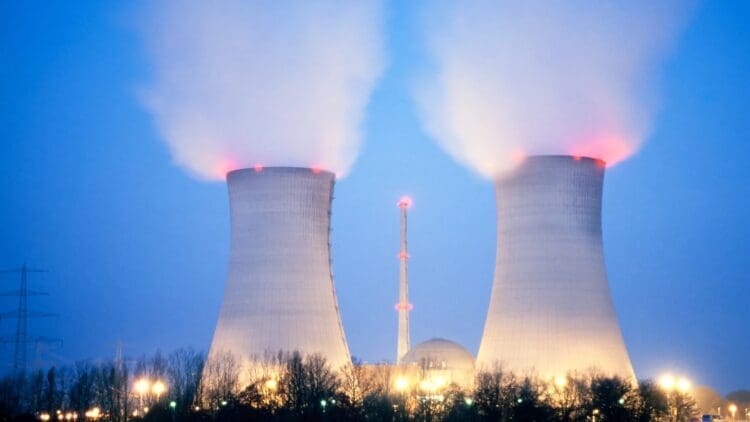China has announced that it has set the reactor pressure vessel at its Xudabao-1 site in Liaoning Province. China is one of the global leaders in the energy sector and has implemented the President’s directive to expand the capabilities of the energy sector in the nation. Nuclear power has seen a shift in perception following several countries opting to invest heavily in the energy resource, which has been with us for a very long time indeed. Now, like a party at a Chinese New Year celebration, everything is set for the Xudabao nuclear plant to begin the next phase of construction.
The 300-ton reactor pressure vessel has been hoisted into place at the Xudabao nuclear power plant
The sheer size of the reactor pressure vessel, or RPV, required extremely precise levels of engineering excellence to be maneuvered into position. The massive RPV will serve as the beating heart for the nuclear power plant and will house the nuclear reactor on site. The China National Nuclear Corporation, or CNNC, has praised the progress made at the Xudabao site by releasing an update.
“The successful installation of the pressure vessel not only provides sufficient space and technical preparation for the subsequent installation of key equipment such as steam generators, main pipelines, pressurisers, and reactor internals, but also marks the steady progress of Xudabao nuclear power plant unit 1 from the civil construction stage to the equipment installation stage,” – China National Nuclear Corporation
China is working hard to meet the expectations laid out by the President, which calls for an increase in nuclear and other renewable energy generation projects. China is among the world’s highest energy consumers due to the exceedingly large population, so this project has the potential to provide not only integral energy capacity but also underscores the nation’s ambitions to decarbonize.
The National Development and Reform Commission gave its approval in 2011
The first phase of the project called for six CAP1000 reactors, with units 1 and 2 in the first phase. Following the approval by the National Development and Reform Commission, construction began and has now reached a critical juncture. The CNNC noted that the total investment in units 1 and 2 exceeds CNY48 billion ($6.6 billion).
The initial plan was changed after the CAP1000 reactors for sites 3 and 4 were replaced by two Russian-supplied VVER-1200 reactors. The Xudabao plant is owned by Liaoning Nuclear Power Company Ltd, of which CNNC holds a 70% stake. Datang International Power Generation Company holds 20%, and the remaining 10% is owned by the State Development and Investment Corporation.
Nuclear facilities are popping up all over the world at the moment, which underscores the world’s embrace of the once-feared fuel source. The CNNC released a statement outlining the progress made at the Xudabao nuclear power plant.
“In order to ensure the safe and efficient completion of this hoisting task, CNNC 23 Xudabao Project Department attaches great importance to it, makes overall arrangements, and strictly implements the construction principle of ‘safety first, quality first. Finally, in close collaboration with various participating units, the pressure vessel was successfully hoisted as a whole, and the whole process was safe and controllable, with controlled quality, demonstrating CNNC II-III’s core competitiveness in the installation of major equipment for nuclear power projects.” – CNNC
Nuclear power has seen significant investments in several nations around the globe
The two largest economies in the world, namely the United States and China, have made significant investments in huge nuclear projects that underscore the standing of the energy resource globally. The China National Nuclear Corporation noted that “The 300-tonne RPV places extremely high demands on lifting accuracy, safety control, organisation and coordination.” This only promotes Chinese engineering and technology overall. China has positioned itself to become a global leader in the renewable energy sector for many years to come.





